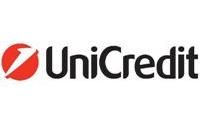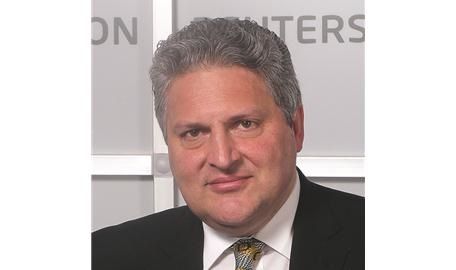UBS and Morgan Stanley must love Jean Pierre Mustier. As the UniCredit CEO sets about the task of sorting out the bank with impressive and lightning-fast urgency, they’ve been in the driving seat of a lot of investment banking business the bank has paid wallet on in recent months.
For a start, the two are joint structuring advisers on UCG’s €13bn rights issue. They also shared the honours on the Bank Pekao disposal. Morgan Stanley advised on the project FINO NPL mega-sale and was joint financial adviser on the Pioneer sale to Amundi (along with JP Morgan). UBS, meanwhile, did the FinecoBank ABB.
They should stick around. Mustier has more to do as he seeks to tame the bank’s balance sheet and focus on core business lines in core locations to achieve the targets of his Transform 2019 restructuring and capital-raising plan announced on December 13.
As for the UniCredit story, if Mustier pulls it off, he could go down in history as not just the man who saved UniCredit but the turnaround hero who restored some pride to Italian and European banking.
Few bank CEOs have achieved so much so efficiently in so short a time as the UniCredit boss has since he took over at the end of June. Chatter about the difficulties the bank is facing and the likelihood of realistic redemption have been constants on the industry gossip circuit for years, to the point where I penned a column in May entitled Who’d want to be CEO of UniCredit?
Given the weight of its non-performing exposures, its heavy cost base and business underperformance, shareholders were in revolt and the shares had tanked. I listed some of the daunting items the new boss would have to confront: trim the group’s sprawling geographical footprint; engage in a round of asset sales; restructure senior management; retune the restructuring plan; figure out what to do with Europe’s biggest NPL mountain; grasp the nettle of a rights issue; and potentially lead UniCredit into a merger.
As to my question, Mustier clearly did want to be CEO of UniCredit. And he clearly took me at my word because he’s either done or announced all of those things I listed. In six months. Even the merger bit – chatter about UniCredit being in talks with Societe Generale emerged just a few weeks ago.
Tuesday’s capital markets day announcements certainly had everyone going. Helped by some short covering, UCG shares were up over 18% on the day at one point before closing off the highs but still up by more than 16% on good volume. And they were up a further 5% in Wednesday’s morning session at one point.
I know bank stocks have rallied in the past few months, but even with that in mind the fact that UniCredit shares have risen by over 42% since Mustier became CEO is worthy of note.
What people seem to like is that the targets announced Tuesday look achievable: +0.6% 2015-2019 CAGR revenue growth; €10.6bn cost target; €404bn in risk weighted assets; more than 12.5% CET1 ratio; over 9% ROTE; €33.5bn/€18.1bn reductions in gross/net non-performing exposures to €44.3bn/€20.2bn; more than 54% NPE portfolio coverage target; a 40bp cut in the cost of risk to 49bp compared with 2015; over 9.5 percentage points cut from the cost/income ratio to less than 52% by 2019; and €1.7bn in net annual recurring cost savings as of 2019.
“We have developed a pragmatic plan based on conservative assumptions, with tangible and achievable targets, dependent on cost and risk management, levers which are firmly under our own control,” Mustier said in the press release. We won’t know how pragmatic it is until 2019, but I didn’t see any dark clouds of pessimism or negative sniping on the day.
To my point above about how much Mustier has achieved, bear with the list below as it really is impressive.
- July: Mustier announced a far-reaching management reorganisation.
- August: sold credit card processing activities in Italy, Germany and Austria to SIA for €500m for a net capital gain of €440m and a 12bp positive impact on the fully loaded CET1 ratio.
- September: Mustier transferred the CEE division from Bank Austria to UniCredit Holding as a structural simplification measure.
- October: UCG completed the 99.9% disposal of Ukraine’s Ukrsotsbank to ABH Holdings in exchange for a 9.90% stake in ABH. In the same month, the bank executed a €522m ABB in FinecoBank equivalent to 20% of its issued share capital.
- December 8 and 9: confirmed the disposal of UCG’s stake in Bank Pekao (32.8% to PZU/PFR plus 7.3% in a market transaction via secured equity-linked certificates) for €2.4bn and a 55bp CET1 ratio increase.
- December 12: confirmed details of the sale of Pioneer Investments (less Poland) to Amundi for €3.345bn plus a €315m pre-transaction dividend for a consolidated net capital gain in 2017 of €2.2bn and a 78bp fully loaded CET1 ratio uplift.
- December 13: confirmation of the €13bn pre-underwritten rights issue and the €17.7bn NPL portfolios sales to Fortress and Pimco; additional loan loss provisions of €8.1bn; a €1.1bn reduction in personnel costs via an additional 6,500 in net redundancies by 2019 for a total net FTE reduction of around 14,000.
His approach to the task at hand looks to have been faultless and almost military in its execution. As well as the turnaround actions, there’s the not insignificant job of transforming the business.
There, elements such as creating a centralised underwriting process, turning the focus towards investment-grade customers, and pushing automation and digitization (including robo-lending) as part of the €1.6bn IT investment programme are all in play. That’s the fun part.

